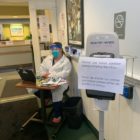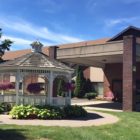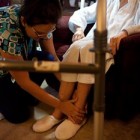Coping With Pandemic: Are You Lonesome Tonight?
|
It’s important to practice physical distancing – but not social distancing. People need connection and belonging. There are ways to achieve that online through volunteering and using new platforms to connect with friends. Low-tech sources of meaning like poetry and prayer are helpful too. C-HIT’s Colleen Shaddox talks about ways to battle loneliness with Dr. Megan V. Smith, associate professor in the Departments of Psychiatry and the Yale Child Study Center at the Yale School of Medicine.








